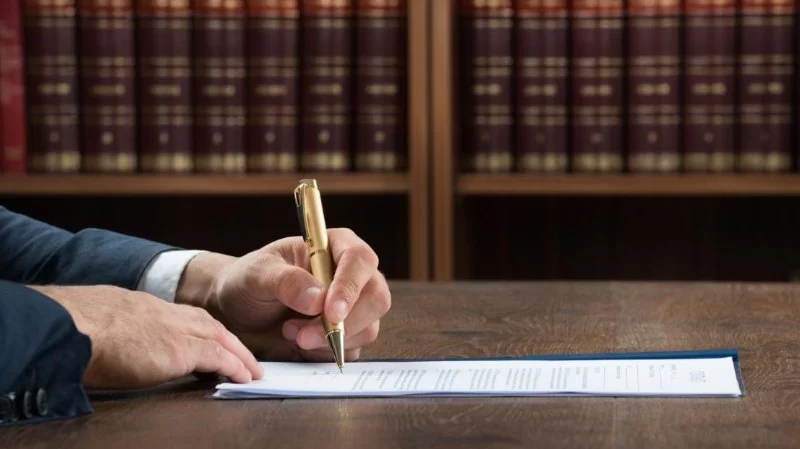- why-legal-document-preparation-matters - Why Legal Document Preparation Matters
- how-to-prepare-legal-documents-with-a-lawyers-help-step-by-step - How to Prepare Legal Documents With a Lawyer’s Help: Step-by-Step
- real-case-how-linda-avoided-a-disaster-with-legal-guidance - Real Case: How Linda Avoided a Disaster With Legal Guidance
- common-types-of-legal-documents-that-benefit-from-a-lawyer - Common Types of Legal Documents That Benefit From a Lawyer
- working-effectively-with-a-lawyer-for-document-drafting - Working Effectively With a Lawyer for Document Drafting
- why-choose-fred-miller-lawyer-for-legal-document-help - Why Choose Fred Miller Lawyer for Legal Document Help
1. Why Legal Document Preparation Matters
Legal documents are not just paperwork—they're instruments that define rights, obligations, and protections in both personal and professional life. Whether you’re signing a lease, writing a will, forming a business, or settling a dispute, accuracy is critical. A single vague clause or missing signature can lead to long-term consequences.
That’s why knowing how to prepare legal documents with a lawyer’s help is essential. Lawyers do more than fill in blanks—they assess risk, clarify intent, and ensure compliance with state and federal laws. With legal guidance, you gain peace of mind and reduce the chance of future conflict or invalidation.
2. How to Prepare Legal Documents With a Lawyer’s Help: Step-by-Step
2.1. Define Your Purpose Clearly
Before you even open a Word doc or download a template, identify the specific purpose of your document. Is it a service agreement? A divorce filing? A durable power of attorney? When you engage a lawyer, this clarity helps them tailor their advice and structure the document correctly from the outset.
2.2. Share Full and Honest Information
Your attorney’s ability to craft precise documents depends on the information you provide. Don’t withhold key details—even if they seem minor. From property ownership to business partners, every fact matters in legal drafting.
2.3. Collaborate on the Draft
Once your lawyer prepares a draft, review it carefully. Don’t assume “legal speak” can’t be questioned. Ask for explanations and suggest edits if something feels unclear. This collaborative process ensures the final document reflects your actual intent.
2.4. Finalize and Execute Properly
Once finalized, your lawyer will guide you through signing requirements. Some documents require notarization, witnesses, or formal delivery. Missing even one of these steps could invalidate the entire document. That’s where a legal partner like Fred Miller Lawyer becomes invaluable—ensuring every box is checked with professionalism and clarity.
3. Real Case: How Linda Avoided a Disaster With Legal Guidance
Linda, a retired schoolteacher in Missouri, downloaded a free will template online. It seemed simple—she filled in names, printed it, and signed it alone. Months later, her son noticed it had no witnesses or notarization. Concerned, they turned to Fred Miller Lawyer for help.
The lawyer explained that in Missouri, her will might be contested or invalid because it didn’t follow state witnessing laws. Fred Miller helped redraft the will, ensured it met legal standards, and even advised Linda on creating a living will and medical directive.
“It felt like a weight off my shoulders,” Linda shared. “I didn’t realize how easy it was to get something important so wrong—and how much better I felt after doing it right.”
4. Common Types of Legal Documents That Benefit From a Lawyer
4.1. Business and Financial Agreements
From LLC operating agreements to partnership contracts and NDAs, business documents are fraught with legal implications. A lawyer ensures you're not exposed to future disputes, tax errors, or compliance violations.
4.2. Estate Planning and Family Law Documents
Wills, trusts, prenuptial agreements, adoption paperwork—these involve sensitive life moments. Lawyers protect your wishes, ensure legality, and help plan for contingencies.
4.3. Real Estate Transactions
Buying or selling a home, leasing commercial space, or transferring property titles all require documents that must comply with local regulations and carry serious financial weight. Legal review is non-negotiable.
4.4. Dispute Resolution and Settlements
Whether it’s a severance agreement or personal injury settlement, having a lawyer draft or review terms ensures your rights are protected and that you fully understand what you're agreeing to.
5. Working Effectively With a Lawyer for Document Drafting
5.1. Prepare Your Questions Ahead
Make a list of what you want to understand—terms, timelines, potential risks. This shows your lawyer you’re serious and helps make consultations more productive.
5.2. Be Open to Legal Advice
Sometimes, what you think you need may not be legally sound. A lawyer might recommend alternative clauses or additional protections based on their experience. Embrace this insight—it’s what you’re paying for.
5.3. Follow Through on Next Steps
If your lawyer asks you to collect documents, respond to drafts, or schedule a notary—do it promptly. Delays can compromise deadlines, and responsiveness helps build a strong professional relationship.
6. Why Choose Fred Miller Lawyer for Legal Document Help
Fred Miller Lawyer combines deep legal experience with an approachable, client-first mindset. Whether you need a simple contract or a complex estate plan, Fred’s team focuses on clarity, compliance, and protecting your interests from start to finish.
They don’t just create documents—they translate your intentions into enforceable, airtight legal form. That’s the kind of partnership that turns paperwork into peace of mind.


 140 broadway 46th floor new york ny 10005 united states
140 broadway 46th floor new york ny 10005 united states daniel mcgarrigle attorney
daniel mcgarrigle attorney burns brashier and johnson
burns brashier and johnson david dabertin
david dabertin ian chaikin
ian chaikin zarzaur & schwartz p.c
zarzaur & schwartz p.c